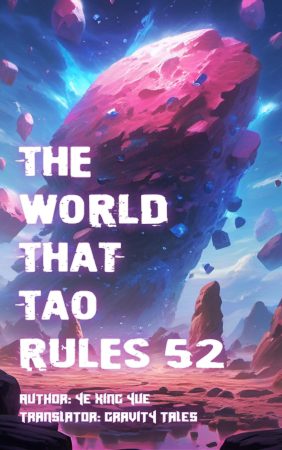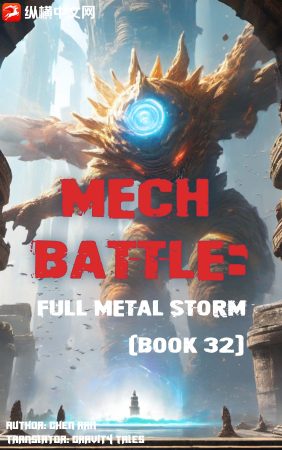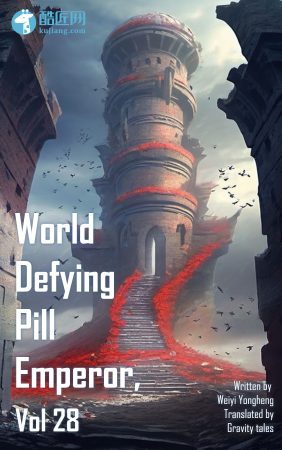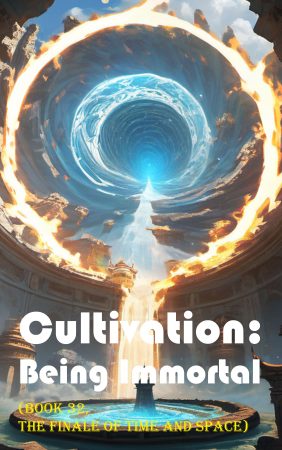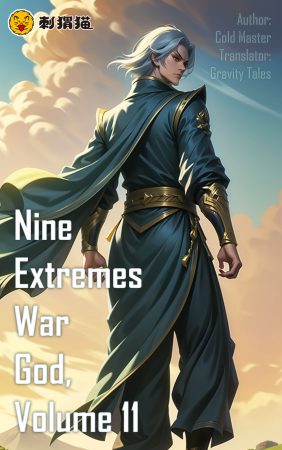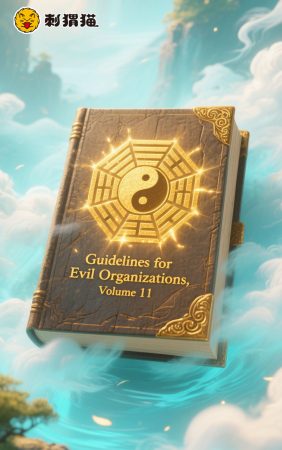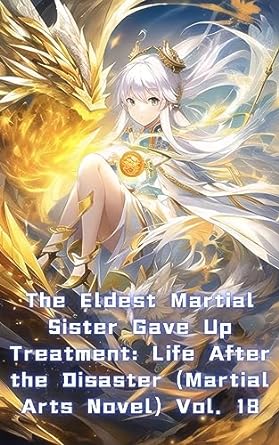Chapter 4
Our Discord Server: https://discord.gg/PazjBDkTmW
You can buy coins here to unlock advanced chapters: https://gravitytales.com/coins-purchase-page/
Chapter 4: Freedom
The spacecraft gradually accelerated, leaving the battlefield behind in the dark depths of space.
“Please note, space jump will commence shortly.”
Accompanied by the notification sound, the spacecraft’s engine roar suddenly increased by an order of magnitude, and the hull began shaking violently, as if it might fall apart at any moment.
He remained immersed in a strange emotion, his chest tight, his heart beating with difficulty, accompanied by waves of sharp pain. Since merging with that data, he felt his core programming had become unstable, with unexpected changes occurring constantly.
He closed his eyes, wanting to calm himself, but all he could see was that solitary fighter boldly charging toward the overwhelming enemy formation ahead.
Only then did he think of a question: this spacecraft could easily accommodate four people—why hadn’t the doctor come aboard to escape together?
In an instant, he realized this was a foolish question. The doctor certainly understood this spacecraft’s performance very well, and knew that before the space jump could begin, they would inevitably face enemy interception. Two people escaping together would mean certain death.
But then he thought deeper: in the absence of the highest authority holder, the doctor’s commands were irresistible orders to him. The doctor could have taken the spacecraft to escape himself, while ordering him to pilot the fighter to engage the enemy.
As a Deep Space Warrior test subject, though he had only learned basic aerial combat techniques, he had mastered all the fundamentals completely and perfectly. In actual combat, even if he couldn’t match the doctor’s ace-level skills, he could at least delay the enemy fighter group.
However, the doctor seemed never to have considered the second option.
At this moment, the spacecraft’s engine roar reached a peak, then suddenly transformed into delicate, gentle sound waves. Ahead was no longer empty darkness, but streams of light began appearing. The spacecraft’s front end started stretching and distorting, everything seeming to become soft.
Countless knowledge related to space floated up in his mind, sparking a question: ‘How could such a small spacecraft withstand space jumping?!’
Before he could find an answer, his vision went black and he lost consciousness.
After an unknown period, gradual calls slowly pulled his consciousness back from the darkness: “Space jump complete, target star system reached. Jump deviation: zero.”
Zero deviation?
He suddenly became alert. How could a long-distance space jump have zero deviation, unless star gates had been built at both ends? But during the jump, they clearly hadn’t passed through any star gate.
He moved his body—fortunately, all parts still had sensation, though his heart was beating rapidly and his consciousness wasn’t quite clear yet. These were aftereffects of space jumping, still bearable.
He looked outside the window. A planet appeared in his field of vision, with a dark red surface marked by large purple patches. Beneath its magnificent appearance, he wondered what the planetary environment might be like. However, since the doctor had designated this as the route’s destination, it should presumably be a planet where survival was possible.
At this moment, the notification sound rang again: “Hull separation program initiated. Separation complete. Hull self-destruct program countdown.”
With a slight explosive sound, the cabin ejected and separated from the hull. The micro-engines attached to the cabin immediately activated, propelling it toward the planet. The separated hull began silently exploding and burning, quickly becoming debris. In the universe, who knew how long it might be before anyone discovered these scattered remains? More likely, no one would ever find them until they became cosmic dust.
Only after separation did he realize that the ejected cabin was actually a complete escape pod. The spacecraft’s hull, having endured space jumping, was already severely damaged. For such a small ship to withstand the torment of spatial transit was already miraculous.
But discarding the hull didn’t require such thorough destruction, did it? After the explosion, the largest remaining fragments were only palm-sized.
The escape pod gradually approached the planet, entered orbit, and fell toward the surface. The cabin shook increasingly violently, and outside the porthole, everything quickly became a sheet of fire-red.
Seeing this scene actually reassured him. An atmosphere meant this might possibly be a habitable planet. Regardless of the atmospheric composition, it was at least better than a completely airless, barren world.
The escape pod streaked like a meteor toward the ground. After penetrating the outer atmosphere, the braking engines began activating to decelerate the pod.
However, his luck seemed poor—a storm was raging within the planet’s atmosphere. The escape pod plunged straight into the storm, immediately spinning wildly. The braking engines’ remaining fuel was quickly exhausted. The pod lost power and, like a stone, rose and fell within the storm, finally tilting as it crashed toward the ground.
After a period of spinning and tumbling, he finally recovered from the post-impact dizziness. He tried moving his body, felt no major bone damage, and reached for the red emergency switch.
The switch only pulled halfway before jamming.
“Warning! External air exceeds breathable parameters. Opening hatch not recommended.”
He completely ignored the warning and forcefully pulled the switch down.
With a bang, the hatch flew out under the action of a small explosive charge and landed on the ground.
He crawled out of the escape pod and looked around. From the lush vegetation surrounding him, this was clearly a planet where life could survive, and it was thriving vigorously.
More importantly, though the atmospheric composition here exceeded breathable parameters, it still contained about 10% oxygen. For someone who hadn’t received deep space survival training, or had only completed basic survival skills, such an environment would be unsurvivable. With advanced survival training, breathing would be barely possible. Of course, this ignored the large amounts of sulfur and other toxic components in the air.
But as a test subject, he could breathe this air.
Taking a deep breath of this planet’s atmosphere, he suddenly felt an indescribable sense of relief, along with a certain indescribable feeling.
Was this feeling called freedom?
Freedom came at a price—the price was the life the doctor had paid for it.
He began thinking, wanting to understand why the doctor had done this. Perhaps it was simply because of the name Chu Junguei?
He suddenly remembered that when they parted, the doctor had given him something that still lay in his pocket. He pulled the item from his pocket and found it was a piece of glass with silver coating—nothing more.
His neural circuits processed for a moment before he realized what he held.
A mirror—the most ordinary mirror.
He knew what a mirror was, but this knowledge came from common sense downloaded through data interfaces—he had never seen the actual object.
Never seen a mirror? He was startled again.
Without routine memory data purging, many things gradually became clear. Only now did he realize he truly had never seen a mirror. In other words, he still didn’t know what he looked like. Previously, he had never thought this was problematic, just as he had never questioned the reality of the world.
For some reason, this small mirror in his hand suddenly became extraordinarily heavy.
He raised the mirror and finally saw himself.
In the mirror was a young, handsome face with stubborn strength yet some childishness, appearing about sixteen or seventeen years old. Crucially, this face was identical to the young man’s face in the input memories!
He suddenly felt somewhat panicked, and the young man in the mirror also appeared flustered—even the subtle expressions matched the input memory data exactly!
For a moment, he even doubted his own identity, unclear whether his current self was the test subject’s will or the will of the young man from the input memories.
Between him and Chu Junguei, who was who? Or perhaps they had always been one entity?
He suddenly remembered there was a mission data package in the data area that had been downloaded with the escape route. It couldn’t be opened then, but now that he had reached the destination, it should be accessible, right?
He called up Mission 44 from the data storage area and lightly touched it—it successfully unlocked.
Dr. Chu’s image appeared in his field of vision. The doctor remained as unsmiling as ever, and unconsciously adjusted his collar. It seemed when recording this video, he was somewhat nervous and very concerned about his appearance.
In the image, Dr. Chu remained silent for a moment before slowly speaking:
“Junguei, I know you’ll have many questions, and I know what you want to ask. Unfortunately, I cannot give you answers to these questions now. Perhaps someday in the future, you can seek these answers yourself. Now, I’ve arranged a legal identity for you—it’s in the data I’ve given you. After returning to the civilized world, you can go to Yueyong Star in the New Zheng Kingdom to find your grandfather. After that, live according to your own thoughts and wishes. No one will arrange anything for you anymore, and no one will give you orders.”
“If…” The doctor hesitated, then finally shook his head and said: “That’s all. I’m not important.”
The image ended there.
That was it? He hadn’t expected the mission to be so simple.
Just then, a new data package appeared and automatically began loading. The package contained a complete set of personal identity information, all in standard data interface format. Any government agency with jurisdiction could query and verify it.
As Dr. Chu’s image disappeared, another program began running, starting to purge his consciousness area. This was deep-level cleaning, even rewriting some underlying algorithms.
He didn’t resist, knowing this was the doctor’s final gift. Though he didn’t understand what this program was meant to do, the doctor wouldn’t harm him.
As the program ran, the mechanical rigidity in his thinking that leaned toward programming was gradually eliminated, and strange thoughts that had never appeared before emerged one by one. When the purging program finished running, he understood that from this moment on, he would think more like a real person, rather than an artificial intelligence program.
He was Chu Junguei now.
He wanted to see the doctor one more time—not for any particular reason, just to see him once more. Perhaps this image was all that remained of the doctor in this world.
But when he searched the memory area again, he discovered that all data related to the doctor and the base had disappeared, vanishing so thoroughly that not even a trace of evidence remained.
He thought: ‘This… why?’
He had a vague answer in his heart—perhaps this was the doctor’s way of letting him sever his history as a test subject and live from now on as a real person.
No matter how many times he tried, he couldn’t recover the deleted data, and finally gave up in dejection.
Only then did a flickering red light catch his attention—it was an indicator light from the escape pod wreckage, showing that remaining power was nearly depleted and would soon lose all energy.
Only now did Chu Junguei realize his situation: he was on an unfamiliar planet that could barely qualify as habitable. But behind the thriving vitality also lay many unknown risks. Disease, predators, even intelligent natives—any of these could cost him his life at any moment.
The first thing now was that he had to survive here.


